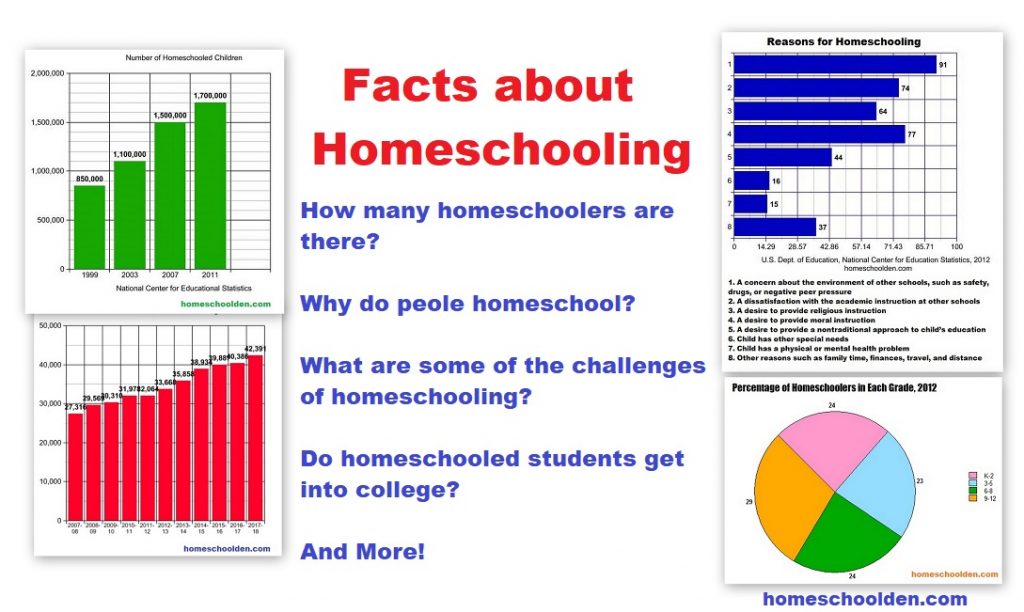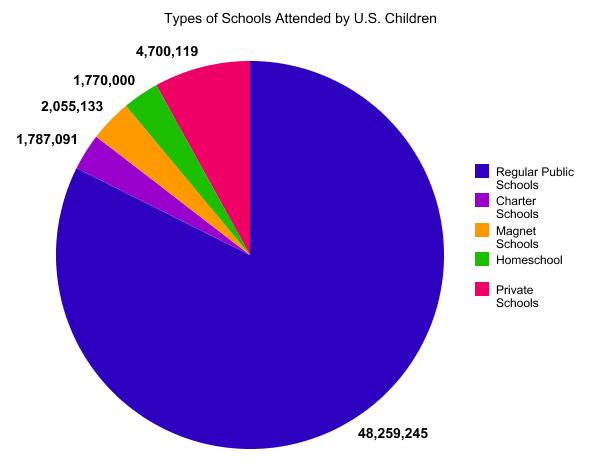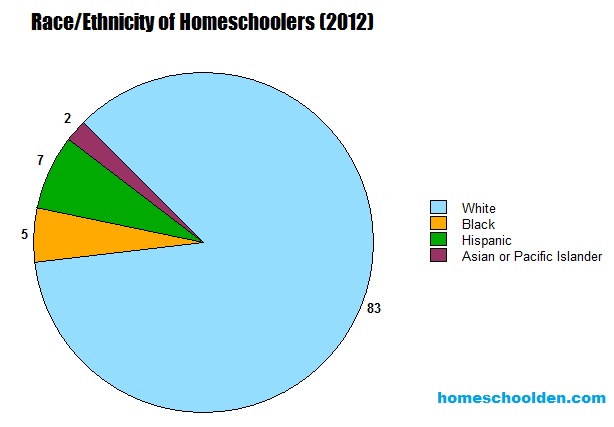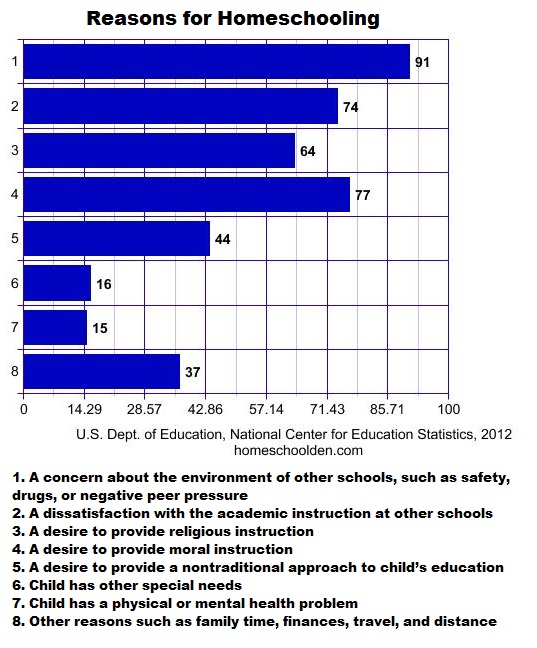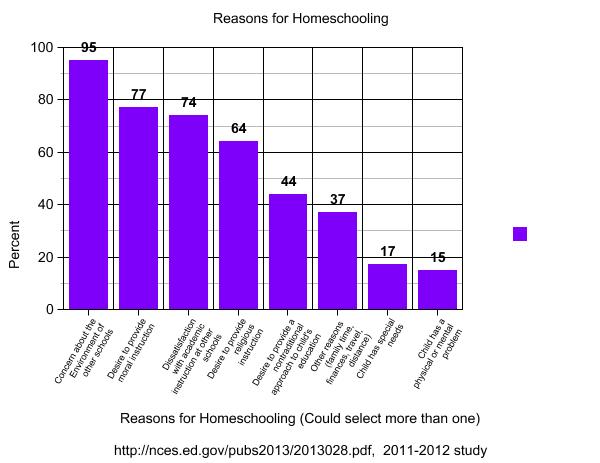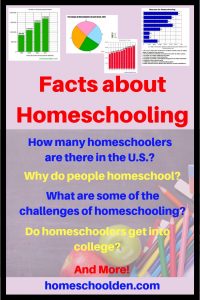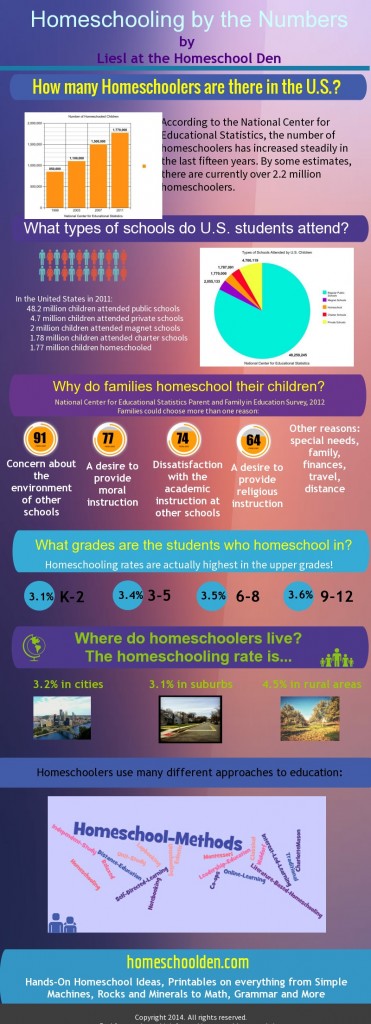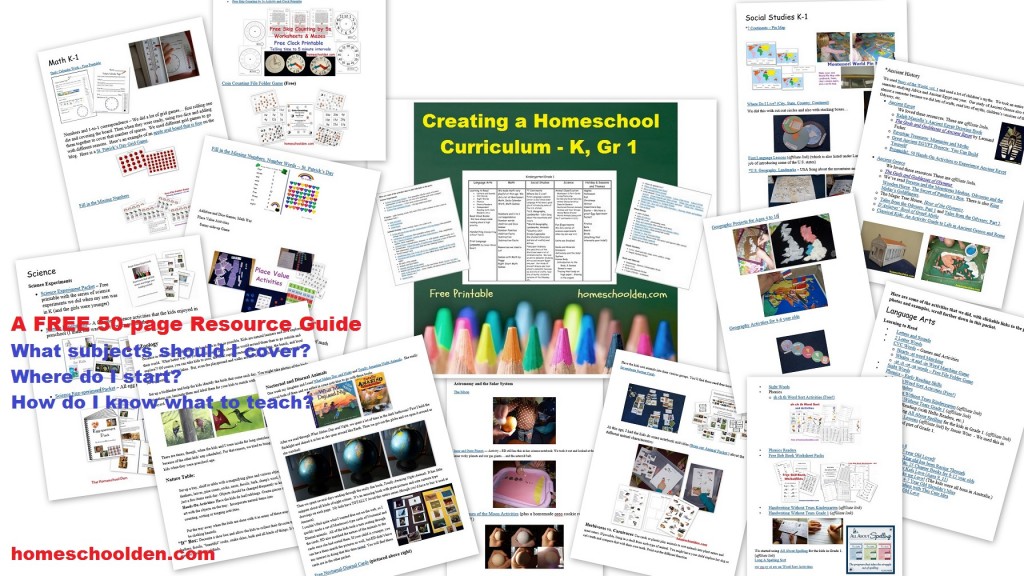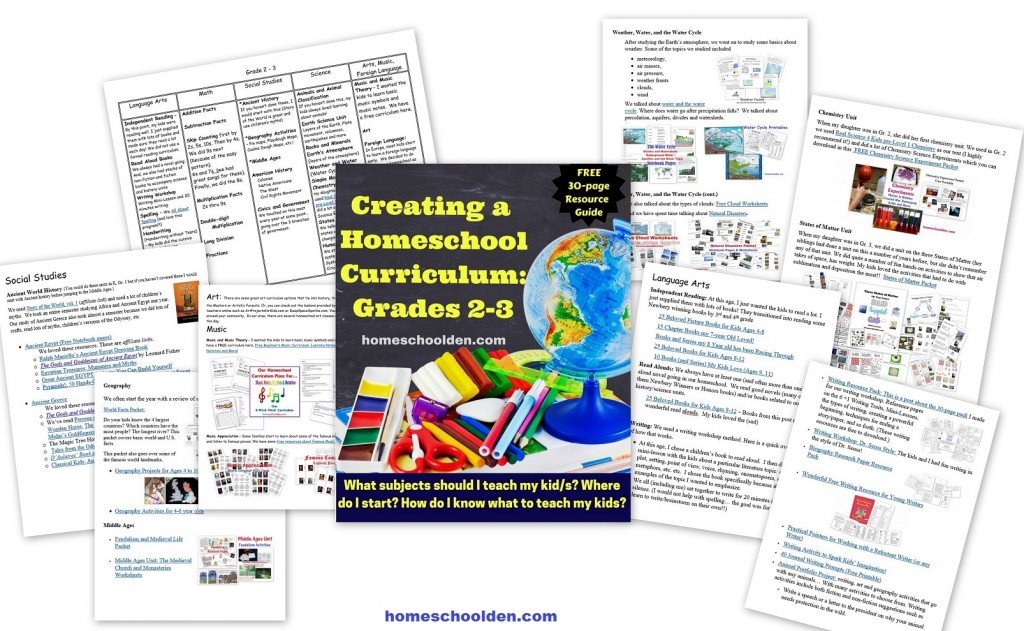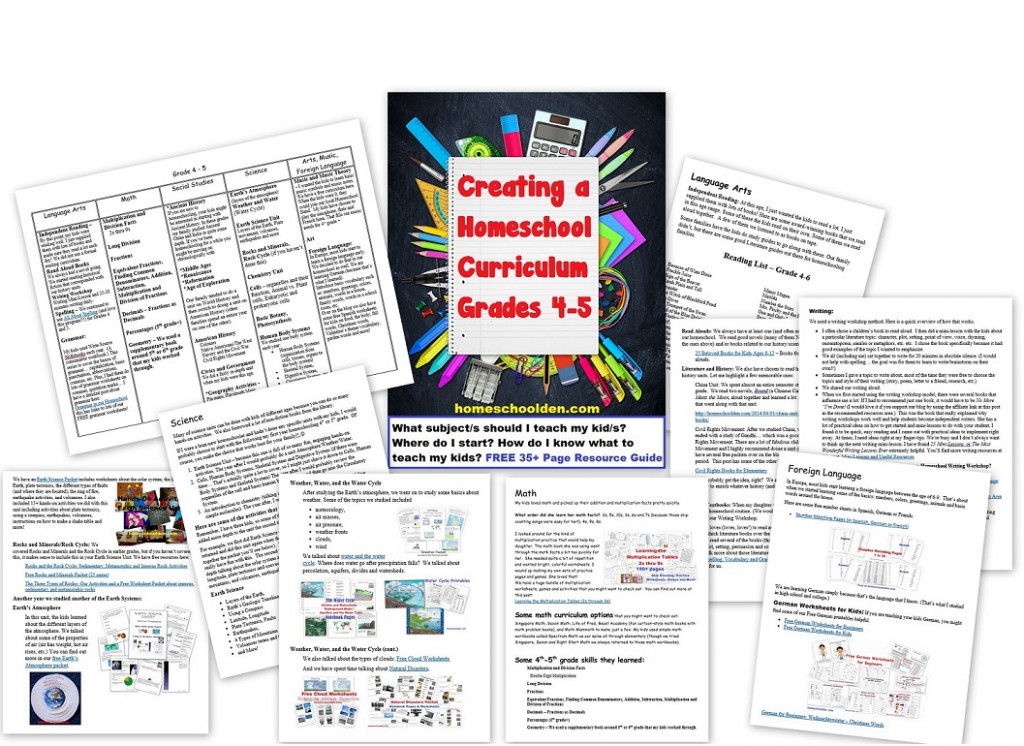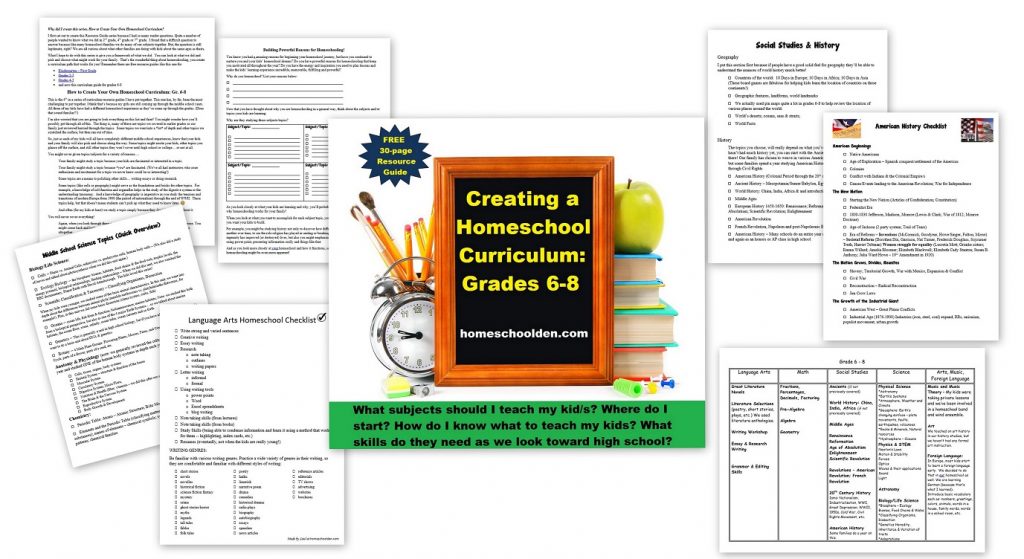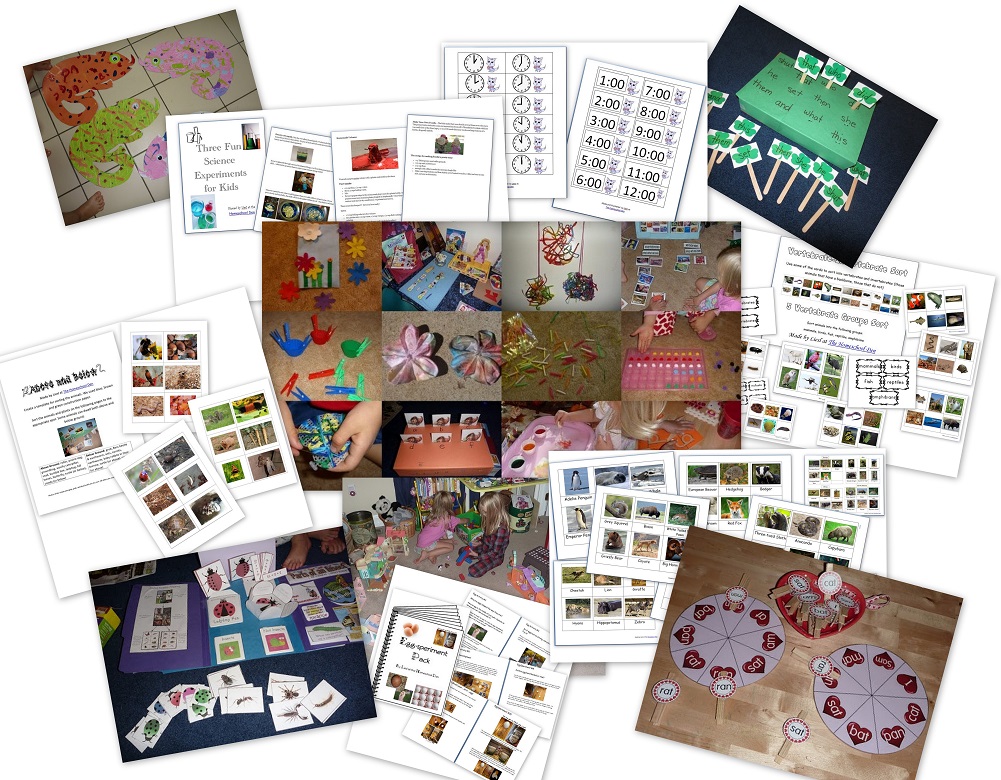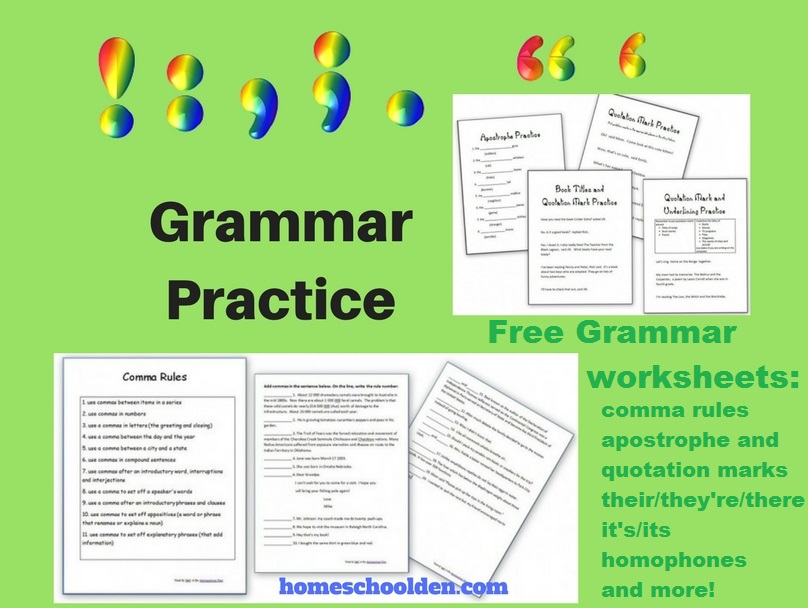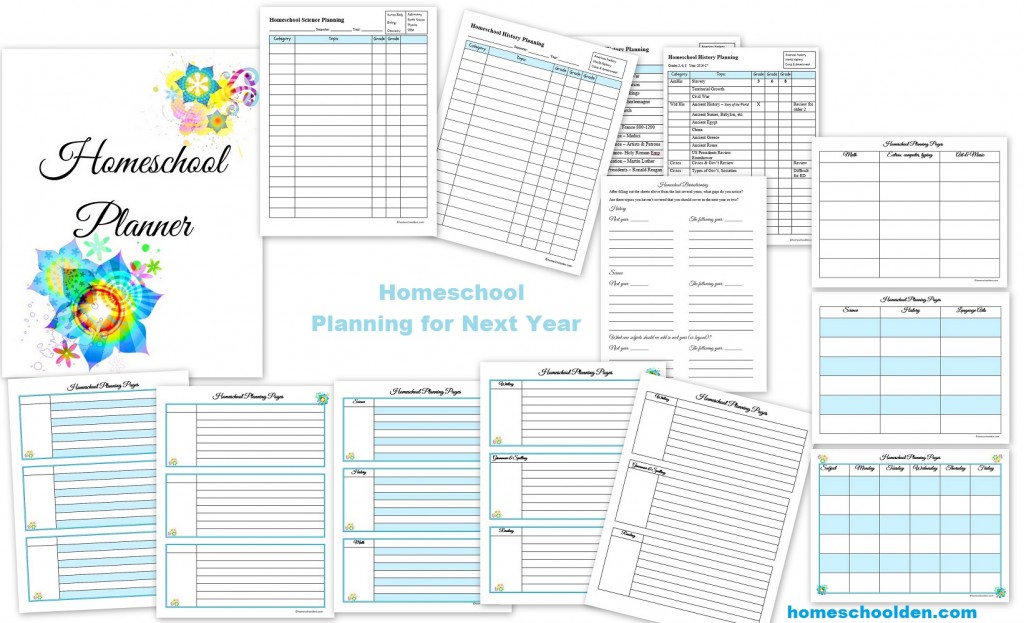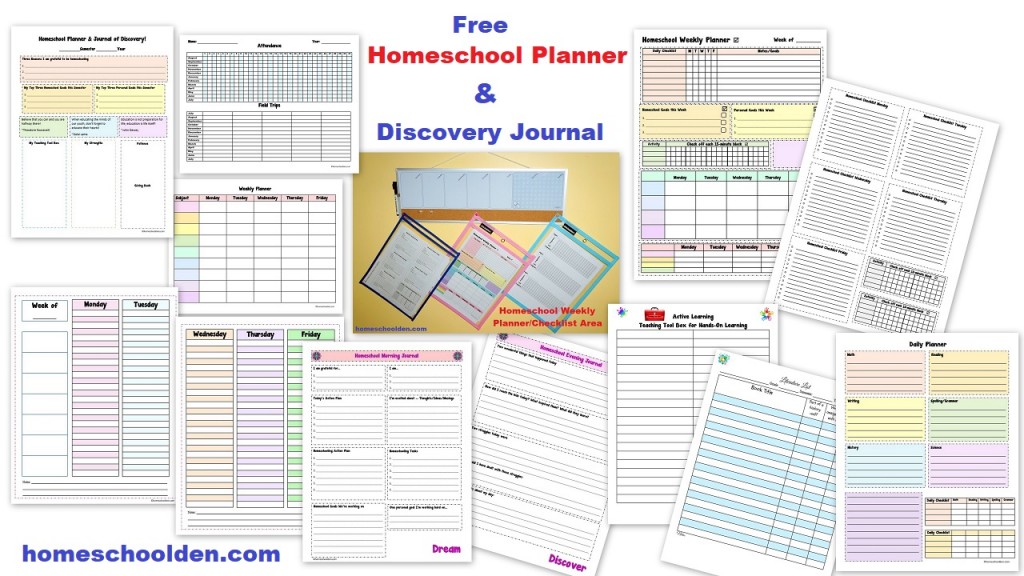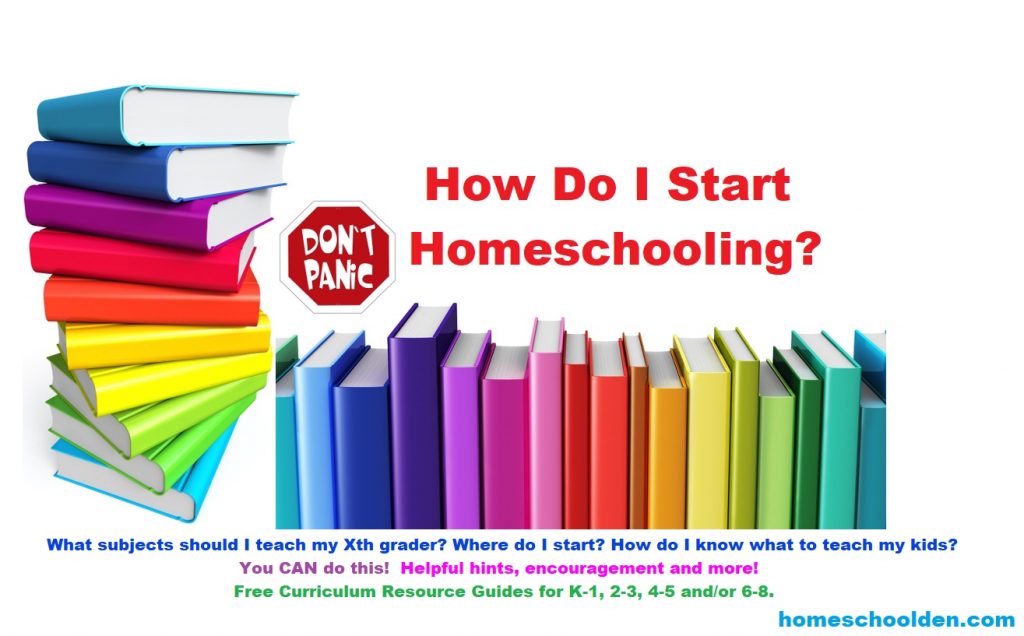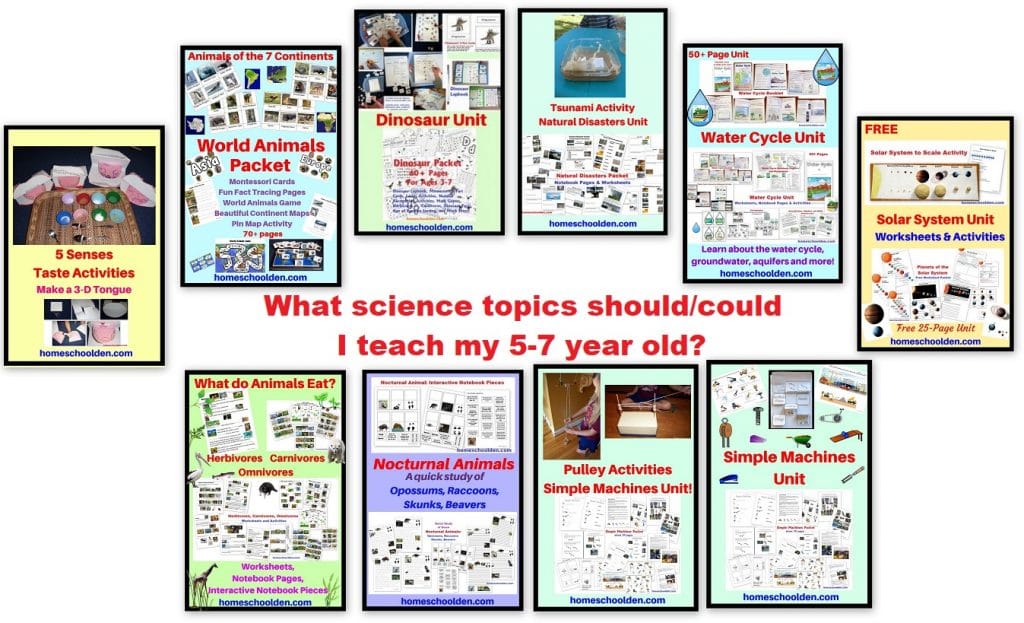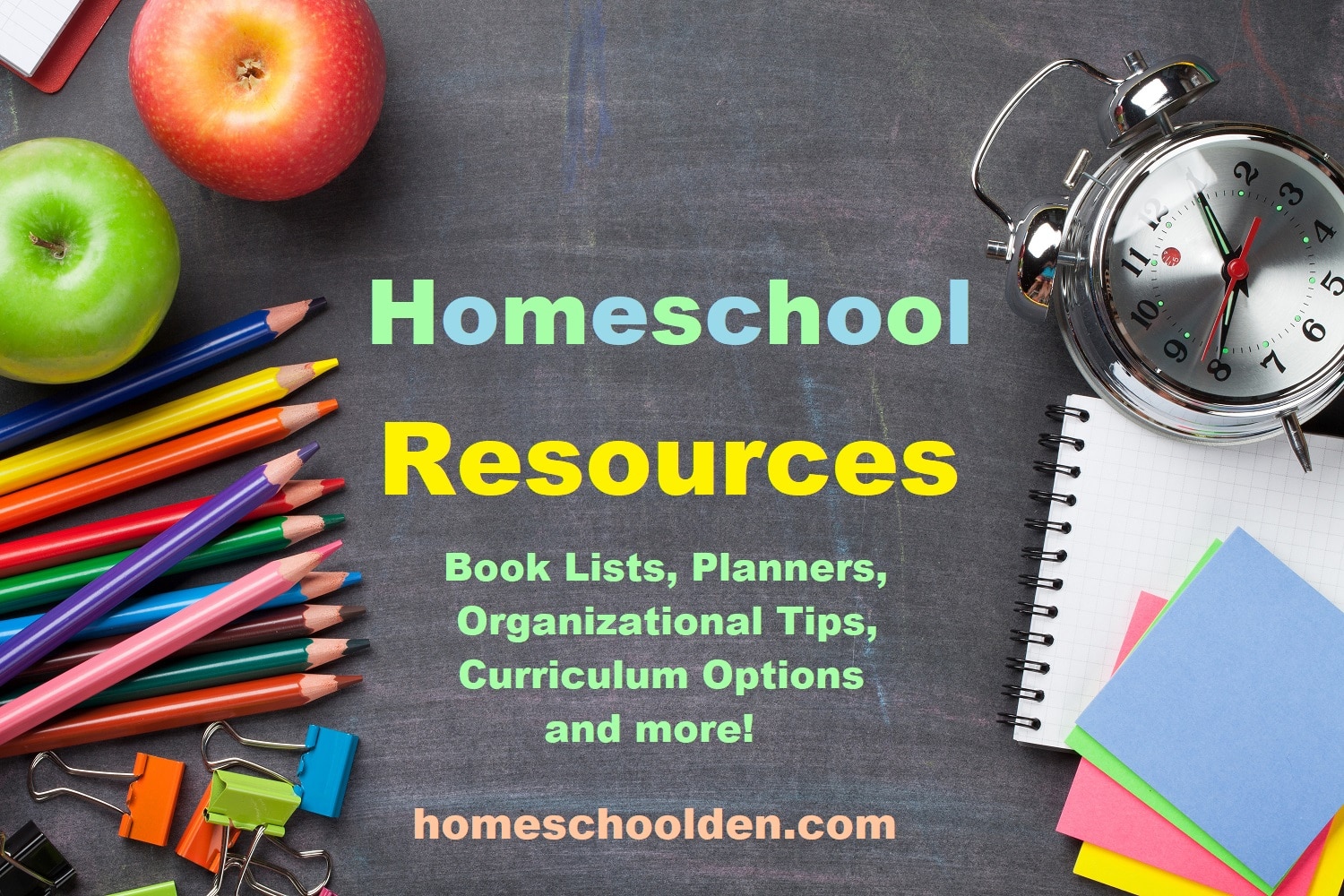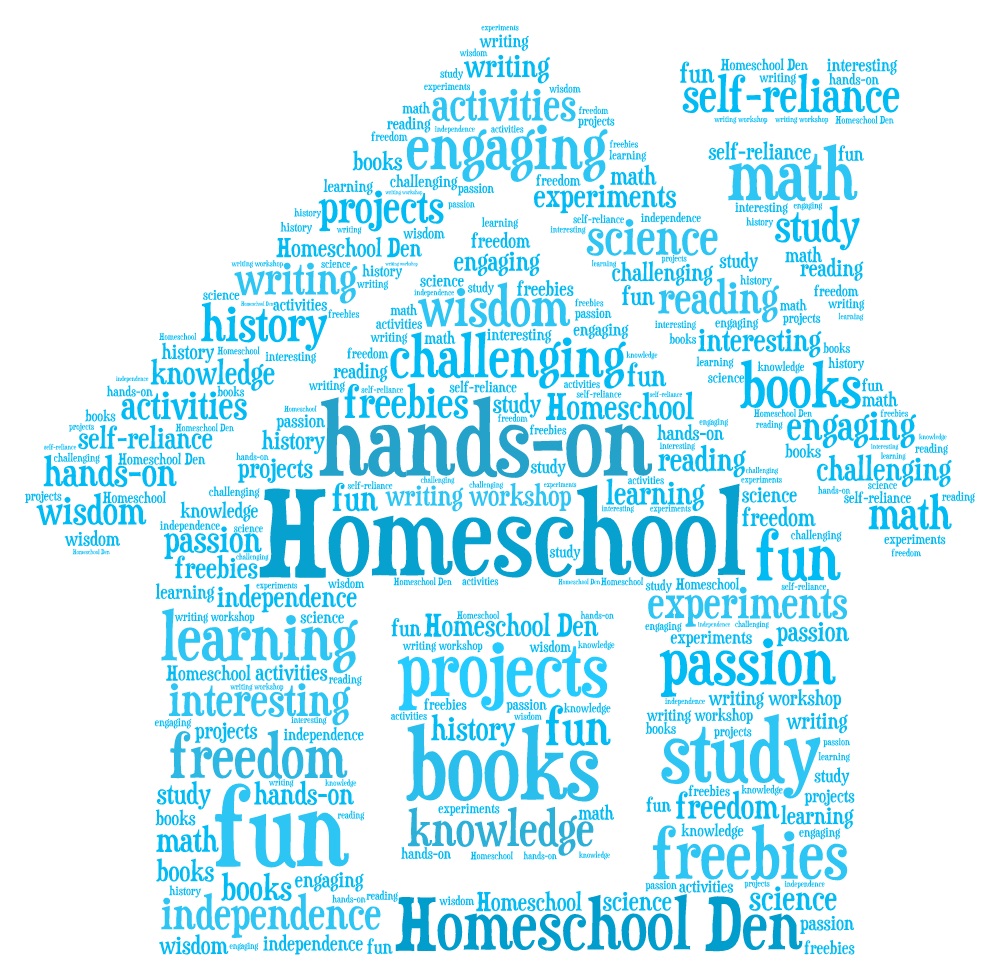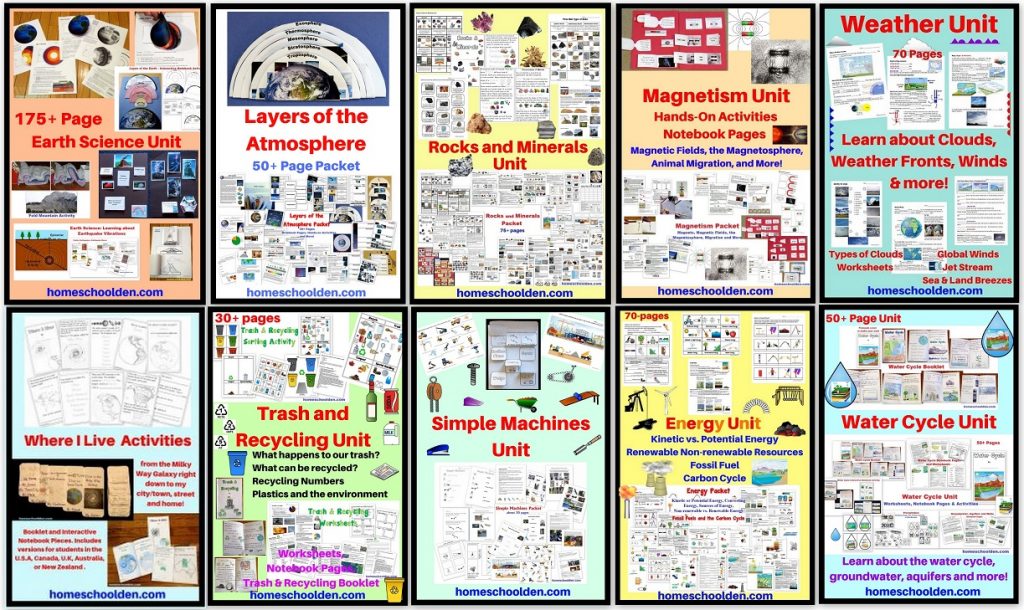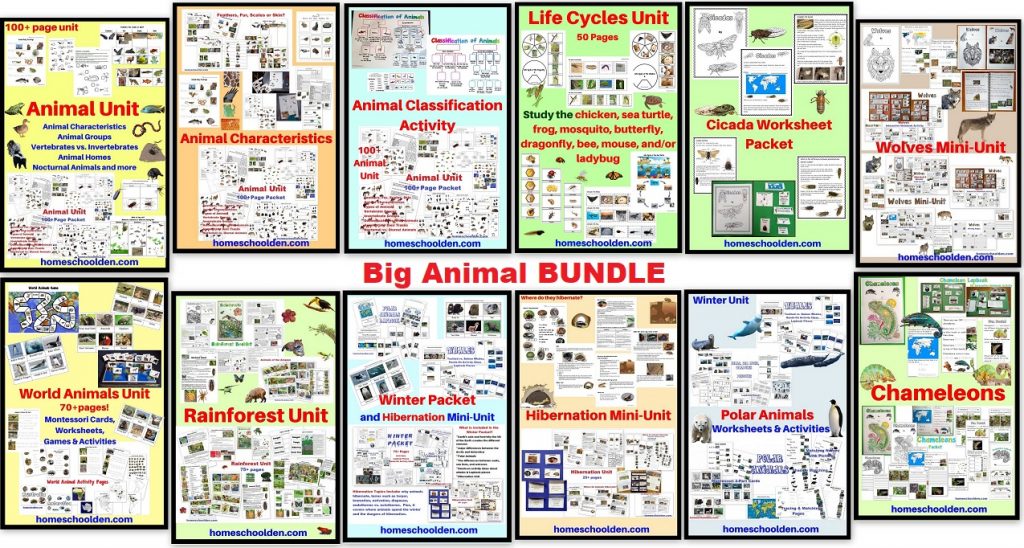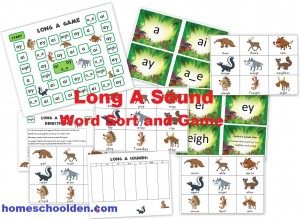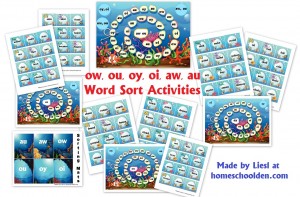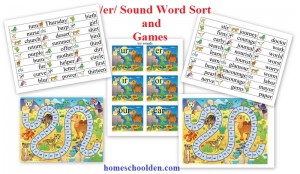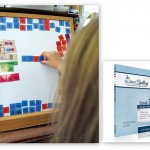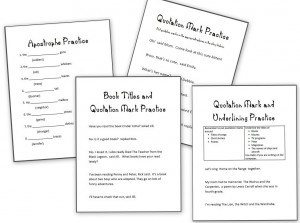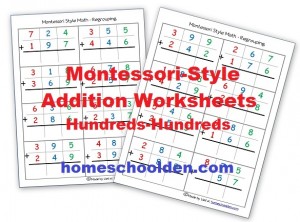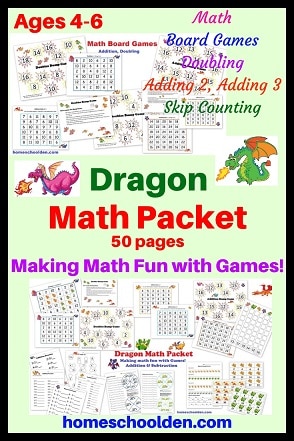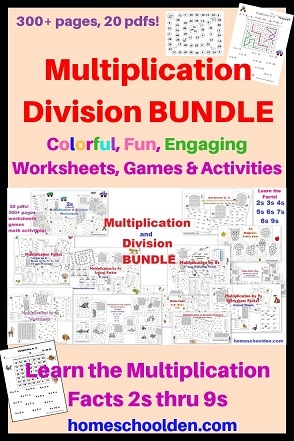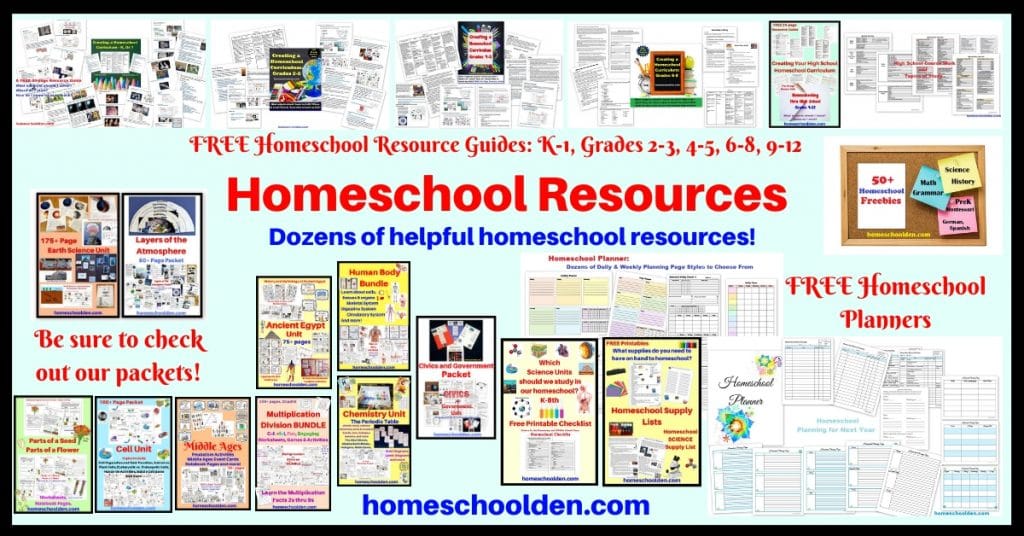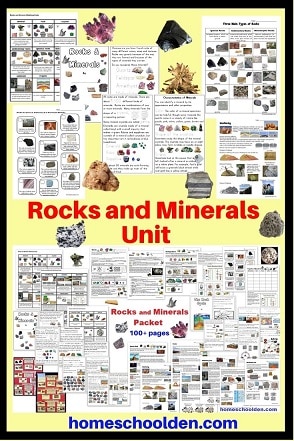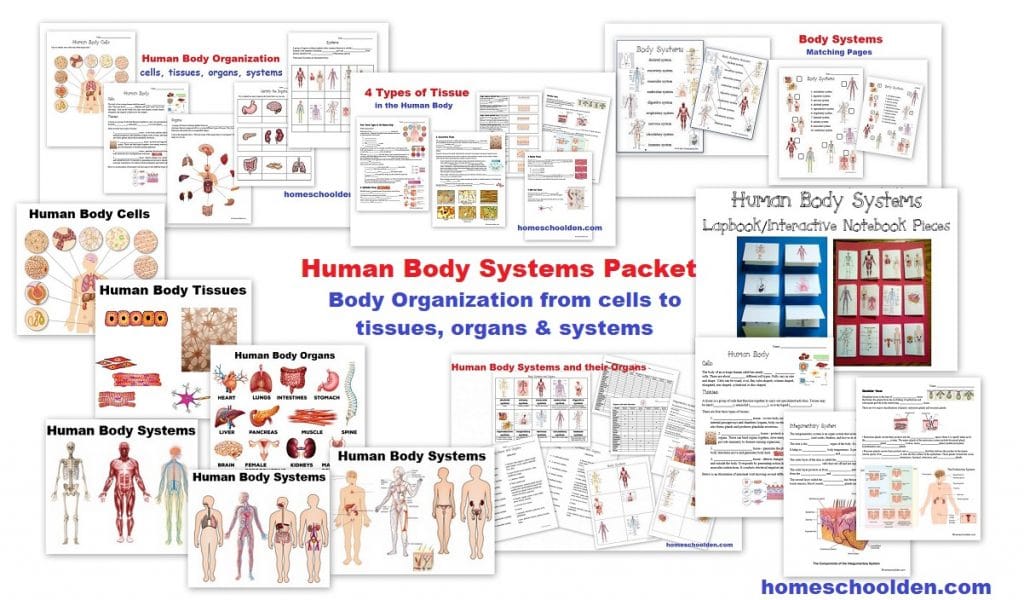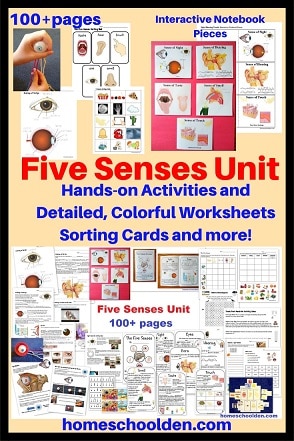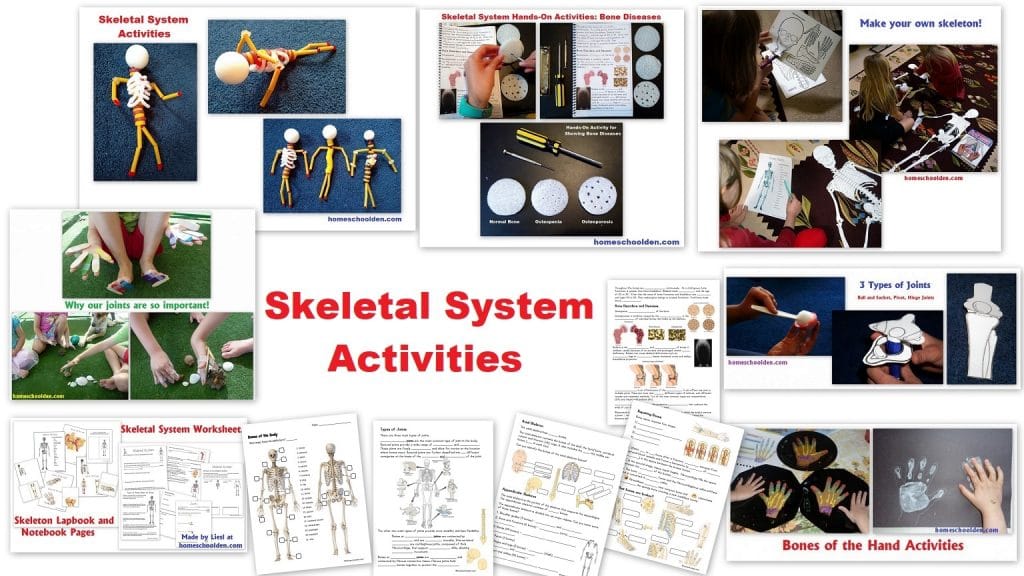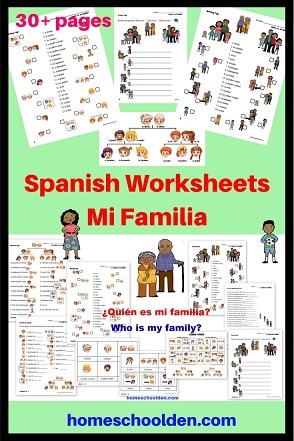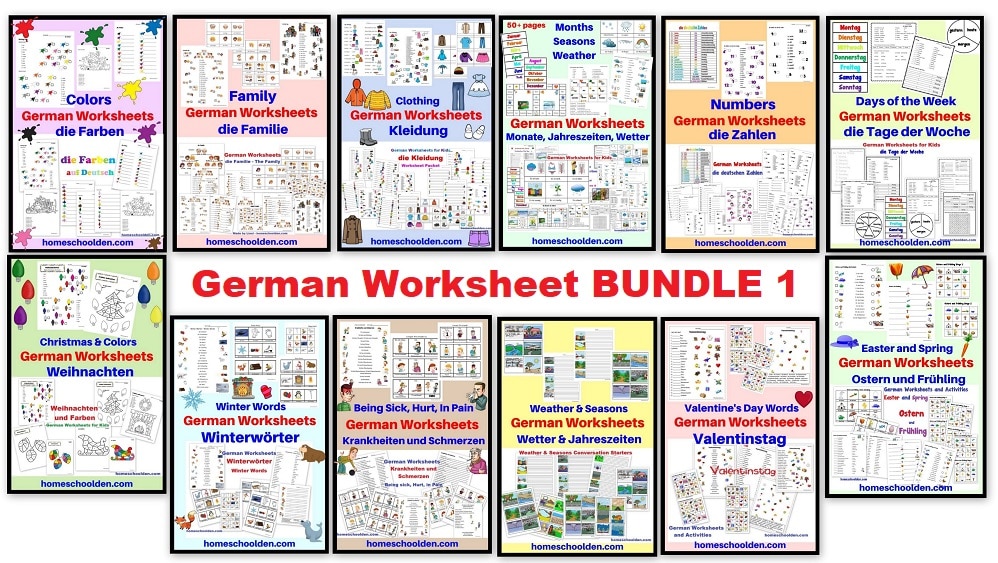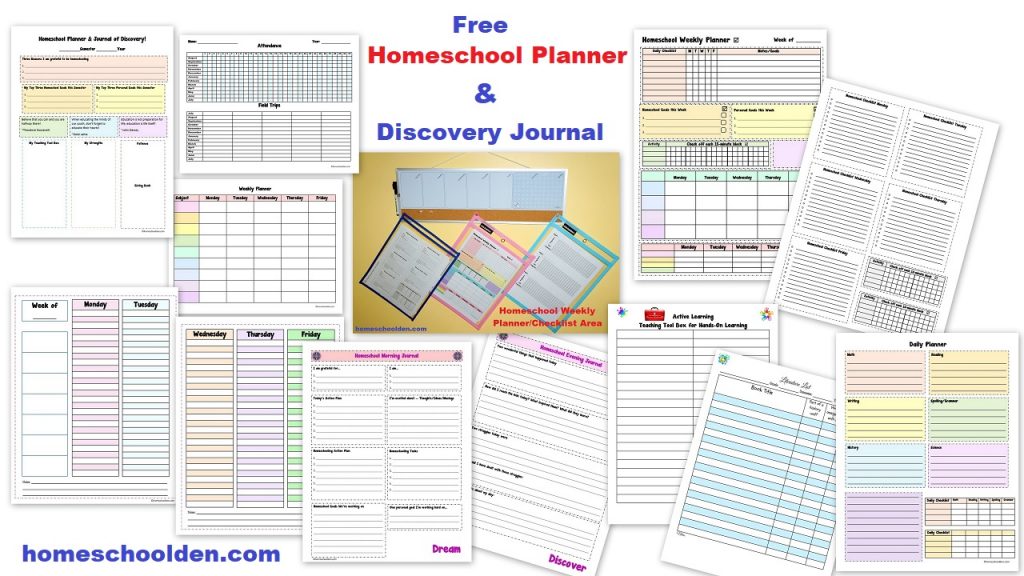Facts about Homeschooling – How Many Homeschoolers are There? Do Homeschoolers Get into College? and more!
As people begin to look into homeschooling, they want to find out some basics: How many homeschoolers are there? What are the benefits and challenges of homeschooling? Will my child be able to get into college? How will my kids do if they haven’t been to a formal school? What about socialization? Will they have enough friends?
 Let’s dig in to some of these common homeschool questions!
Let’s dig in to some of these common homeschool questions!
How many homeschoolers are there?
It is challenging to get an exact number on this question because each U.S. state compiles information about homeschoolers differently. In fact, some states don’t keep data like this at all! Some homeschoolers are under umbrella schools (so may be included as private school students or under a charter school). As the National Center for Educational Statistics points out, one of the primary challenges in collecting relevant data on homeschool students is that no complete list of homeschoolers exists. That makes it difficult to come up with an accurate number.
But, you probably just want a rough estimate of how many homeschoolers there are in the U.S., right? Researchers for the U.S. Department of Education estimated that there were 1.69 million students ages 5–17 being homeschooled during the spring of 2016, but estimates put together by the National Home Education Research Institute, NHERI place these numbers much higher. Dr. Brian Ray of NHERI estimates that there are 2.3 million homeschooled students.
As you can see, the number of homeschooled children has steadily increased over the past 15-20 years.
In 2007, 2.9% of students were homeschooled. In 2011-2012, 3.4% of students were homeschooled. The graph shows that there’s been a steady increase in the number of homeschoolers:
How many homeschoolers are there in the U.S.?

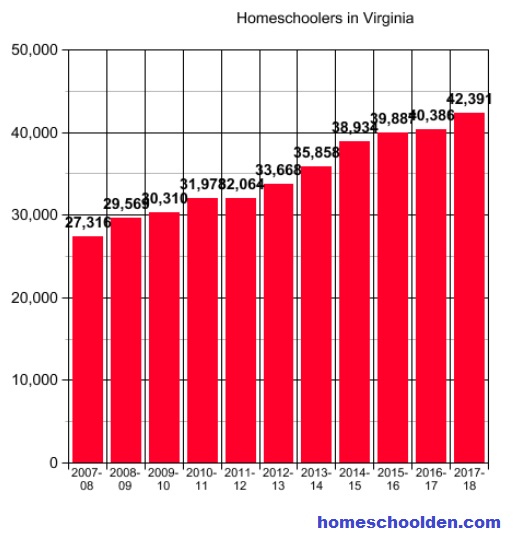
Overall, the vast majority of students in the U.S. attend public schools… based on some of the statistics I found, a pie graph of U.S. students might look something like this (Homeschoolers being the green slice!):
The rates of homeschooling were highest in rural areas where 4.5% of students were homeschooled. The homeschooling rate was 3.2% in the city, 3.1% in the suburbs and 2.7% in towns.
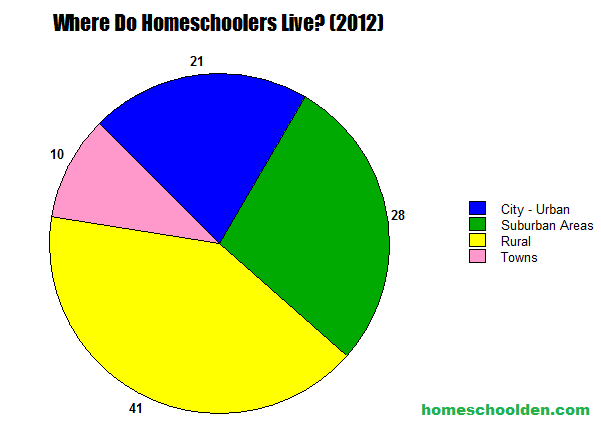
One things that surprised me about the statistics was that the homeschooling rate was actually higher in the upper grades. Just from conversations I’ve had with others, I had assumed that many people choose to homeschool in the younger grades and then put their children into traditional school (public or private schools) in middle school or high school. I had it totally wrong!
- The percentage of K-2 students who homeschooled was 3.1%.
- The percentage of 3rd-5th grade students who homeschooled was 3.4%.
- The percentage of 6th-8th grade students who homeschooled was 3.5%.
- The percentage of 9th-12th grade students who homeschooled was 3.7%.
The graph below shows the percentages of homeschoolers in each grade:
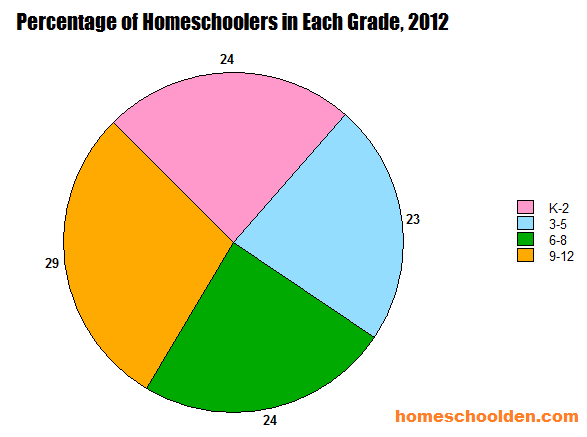
Why do parents homeschool their children? These were some of the reasons given by parents as to why they homeschool their kids (from the U.S. Dept. of Education):
- Concern about the environment of other schools such as safety, drugs, or negative peer pressure.
- A dissatisfaction with the academic instruction of other schools
- A desire to provide religious instruction
- A desire to provide a nontraditional approach to child’s education
- The child has special needs.
- The child has physical or mental health problems.
- Other reasons such as family time, finances, travel and distance.
In a 2011-2012 survey, parents were asked why they homeschooled. They were given different options to choose from and could choose more than one reason.
Reasons parents gave for homeschooling:
- A concern about environment of other schools (worded as, “You are concerned about the school environment, such as safety, drugs or negative peer pressure?”) 91%
- A desire to provide moral instruction 77%
- A dissatisfaction with academic instruction at other schools 74%
- A desire to provide religious instruction 64%
- A desire to provide a nontraditional approach to child’s education 44%
- Other reasons (some of these included family time, finances, travel and distance) 37%
- Child has other special needs 17%
- Child has a physical or mental health problem 15%
When asked what the most important reason for homeschooling was:
- 25% chose a concern about environment of other schools
- 21% chose other reasons
- 19% chose a dissatisfaction with academic instruction in other schools
- 16% chose a desire to provide religious instruction
Some parents considered putting their kids in private schools, but found private school tuition to be too expensive. Homeschooling is seen as a viable alternative to private school.
What about socialization?
For most families I know, socialization is a non-issue. Homeschoolers are often out of the house participating in a wide range of activities from co-ops and outside classes to sports, scouts, music, drama, art, and more! There are many homeschool programs available now at nature centers, museums, zoos, and historical sites. Plus, many local homeschool groups have regular play dates, get togethers and field trips.
This PBS.org article addressed socialization. Here are a few things mentioned in this article:
Dr. Brian Ray, president of the National Home Education Research Institute says socialization is not a problem for the vast majority of homeschool students, many of whom are involved in community sports, volunteer activities, book groups or homeschool co-ops. “Research shows that in terms of self-concept, self-esteem and the ability to get along in groups, homeschoolers do just as well as their public school peers,” says Ray.
Dr. Ray cites a July 2000 study by the Seattle-based Discovery Institute in which counselors watched videotapes of homeschooled and schooled children playing. The counselors, who did not know which children were from each category, noted that the homeschool students demonstrated fewer behavioral problems than their peers—a result that Ray attributes, in part, to homeschoolers’ main role models: “Public school children have, as their main role models, peers, while homeschool students have as their role models, adults,” he explains.
Broadening a child’s peer group may offer some advantages—especially when it comes to avoiding negative influences. Jeffrey Koonce, a school superintendent in Miller County, Missouri, who wrote his doctoral dissertation on how homeschool students fare when they transition into the public schools, says that the students he interviewed were, in many cases, more “socially adept” and mature than their peers. Koonce says that the homeschool students who entered high school would hear “16- or 17-year-old kids talking about getting drunk and who’s sleeping with who, and they’d be like, ‘Get real. Get a life.’”
Kenneth Bernstein, a high school government and social studies teacher in Prince George’s County, Maryland, says that while some homeschool students possess a maturity that their peers lack, others can be sheltered, especially when it comes to exchanging ideas with people from diverse backgrounds: “It depends upon how their parents approached [homeschooling]. It also depends upon circumstances other than schooling for the opportunity to interact with young people different from them.”
Homeschooled kids have the opportunity to take place in a wide range of outside activities. They can take classes with other peers, can attend community college (for dual high school/college credit). They can play on community sports teams and participate in a growing number of activities available to the homeschool community.
Click here to save this homeschool article on Pinterest
What are Some of the Benefits of Homeschooling?
As homeschoolers we can find the learning methods, curriculum and learning style that suit our children best.
We can nurture and follow our child’s unique learning needs.
We can customize our children’s course of study.
Our kids can learn at their own pace.
Our kids can get more individual attention.
Learning can be hands-on, fun, challenging, exciting and more!
There’s no “busy work” (or you can throw it out, if we realize it is!)
There are more opportunities for self-directed study on chosen topics.
We are able to take advantage of learning opportunities as they happen. We can slow down and delve into a topic in more depth; take advantage of local learning opportunities; join a co-op; learn from a mentor.
We can create meaningful direct learning experiences rather than second-hand experience from books.
Flexibility!
We can nurture our child’s unique talents.
We can create our own schedules.
We can plan our schooling around our family’s schedule.
We can school when the kids are at their best.
We have well rested kids.
We are able to take advantage of the weather.
We can go on field trips outside the home.
We’re able to go on vacation when it suits the family.
Homeschoolers often have more free-time. Homeschooling is often very efficient and families can get through their homeschool day more quickly than in a traditional school.
Homeschoolers are more insulated from negative influences such as bullying, cliques, peer pressure and violence.
We can help our children mature at their own pace.
We can address “big” issues when they are ready.
Homeschoolers often out-perform their schooled peers on standardized tests.
Close family relationships.
Stability during challenging times (birth of a child, death in the family, medical issues, etc.).
We share in the every-day joys (and challenges!) of life.
We are in good company. Estimates are that there are well over 2 million homeschoolers now and the numbers appear to be increasing.
What are some of the Challenges of Homeschooling?
Balancing the needs of all the members of the family. Each family is different, but let’s face it, some days can be downright tough when someone is ill, or a toddler is into everything and needs constant attention and/or supervision, or when the kids have activities outside the home and you need to be in the car a lot.
Commitment — Homeschooling requires a commitment of time, finances etc. Homeschooling can require life style adjustments as one parent might choose to stay home full time or work only part time.
Worry/Fear – Making the commitment to homeschool your kids can be a daunting decision. Some homeschoolers worry about how they are homeschooling, what (subjects/topics) to teach, what books or curriculum to use. Homeschoolers may be plagued with self-doubt and concern that they are not doing enough, covering the right things, and so forth. I’ve written quite a number of articles about this very topic. If this is you, you might want to visit this page for links to lots of articles about homeschooling in general… and this page for some posts about where to start & how to choose the subjects/topics you want to cover and how create your own homeschool curriculum.
Keeping up with the housework when there are people always at home!
Socialization — But not for the reasons, you might think. We have to be very careful to keep our schedule free enough that we’re actually at home doing school work. In our area there are lots and lots of homeschool opportunities. Our kids have a lot of friends, play date and social opportunities. Other homeschoolers have found it challenging to find homeschoolers who are compatible with them, the ages of the kids, their philosophy of life, religion and so forth.
Being with the kids 24/7 — This can obviously create challenges and needs for both the kids and the parent/s.
Money — This can be an issue if one parent has decided to stop working or now only works part time.
Pressure — Most all of my homeschooling friends feel a sense of pressure to make sure they are doing the best they can for their children. Relax! You are doing an amazing job already. Don’t be hard on yourself and remember this is a journey. It doesn’t matter if they know their addition facts this moment… it’s the long-term goals we need to stay focused on!
Group projects — People learn from one another when they work toward a common goal. This can be a challenge for homeschoolers in science, technology, writing and so forth. It will be challenging for parents to create learning opportunities where students interact together and have interesting discussions with their peers. It is valuable to have feedback from kids with different viewpoints and it may take some work to create this type of learning opportunity.
This is a family commitment. It can be trying if you (and your spouse) are not full committed. It can be hard if extended members of your family don’t understand what homeschooling is all about.
Homeschooling is still outside the norm. The numbers are growing, but people will pepper you with questions… Everything from “what about socialization?” to “How will they learn ___ a foreign language? trigonometry? calculus? etc.”
Do homeschoolers go to college?
Students coming from a home school graduated college at a higher rate than their peers—66.7 percent compared to 57.5 percent—and earned higher grade point averages along the way, according to a study that compared students at one doctoral university from 2004-2009. (You can read the study here. This study was also mentioned in this US News and World Report article.)
Do homeschoolers have a hard time being accepted into college?
An article from onlinecollege.org says, “There’s a common misconception that homeschoolers have difficulty when it comes to getting into college. This may have been true 20 years ago, but these days, colleges are making the process of admissions for homeschoolers simple and fair. In fact, many colleges are now seeking out homeschoolers themselves, as homeschooled students tend to be excellent college students.”
You may have to provide more detailed information about your homeschooled student’s high school experience, but many colleges have adjusted their admissions process for homeschoolers. Brittney Dorow, assistant dean of admission at Colgate University states: “It’s really important that a home-schooled student shares with us a really detailed account as to how they came to be a home-schooled student and what they’ve done with their time as one,” and goes on to say “And that’s going to come in a transcript that they have written out, which will detail a trajectory as well as the classes that they’ve taken and give an explanation of what those courses are.” If you are interested in reading more, I suggest you read this informative July 2018 article: How Homeschooling Affects College Admissions
I personally know a lot of a number of homeschooled kids who have headed off to college are doing wonderfully… including my niece (who will graduate from college in May with a double major and is planning on heading on to graduate school) and my nephew, who is a freshman in college. 🙂
Let me share this graphic I once made Homeschooling by the Numbers:
The statistics in the graphic above are based on the last U.S. government survey report that was put out several years ago; you can read the full report here: NCES.ed.gov Homeschooling in the United States Report. Surveys, of course, are not completely reliable. And not only that, but some states don’t track homeschool statistics and many homeschoolers (like my sister’s family!) homeschool under an umbrella school (so wouldn’t be included in data like this). But, this information is still intriguing, don’t you think?!
Are you a new homeschooler looking for more resources or a veteran homeschooler looking for some ideas to change up and add to your homeschool program? Here are a few resources you might find helpful:
I have a series of free resource guides, which I put together to help answer questions like… Where do I start? How do I know what to teach? What units did you kids do when they were in __ Grade?
Creating Your Own Homeschool Curriculum: These are some resources I made that might be helpful as you create your own homeschool plans. These are somewhere between 30 and 50 pages and are FREE to download:
This post has a wide range of different hands-on activity ideas and teaching strategies that might inspire you in your homeschooling! You can grab a free copy of the teaching strategies printable here:
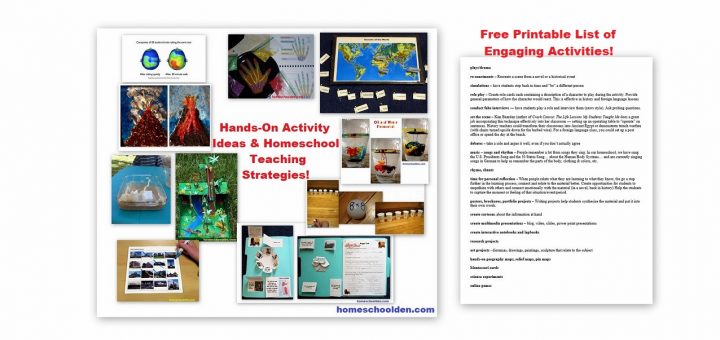
We love doing hands-on activities and we get a lot of hits from Pinterest on our activities, but equally as popular are our printables — pretty much in all subject areas.
- For the younger crowd, ages 2-6, people seem to really like our science experiment packets and the huge activity list we made. We also get hundreds of hits each day on our “Preschool at Home” posts.
You might also want to check out these resource pages:
- History Units — We’ve studying everything from the Ancient World through the Civil Rights Movement and everything in between! We’ve done tons of hands-on history projects, read amazing book, watched some incredible documentaries and films and all along the way I’ve been making notebook pages and other activities. Many of our notebook pages are free — some such as our World Facts Packet, Civics and Government Unit, American Revolution, Slavery and the Civil War, Age of Exploration, European History 1500-1750 (Renaissance/Reformation/Age of Absolutism) and others are in our store.
- Science Units: We absolutely ♥ love hands-on science activities. We do a lot of science experiments as we do our science units. You might find something useful here:
- Language Arts — We have tons of free grammar pages on things like comma rules, their/they’re/there and more.
And these categories:
- Starting to Homeschool
- Ages 2-6
- If you are on a desktop, you can check out the categories on the right side-bar and find the unit you might be interested in Ancient Egypt, addition, birds, geography units, engineering and STEM activities and more than 150 more!
Homeschool Planning for Next Year (Free Planning Pages)
These are some free Homeschool Planning Pages that I use as I try to figure out our long-range homeschooling goals. This post shares share the process I go through… and also will share the planning pages that I’ve been using the past few years. I like having colorful planning pages to work on. This isn’t really a weekly/monthly planner, but rather a homeschool vision planner. This 30+-page pdf is currently FREE to download! Let me know if it’s helpful! ~Liesl
Free Homeschool Planning Pages
And, if you are looking for some printables to create your own Homeschool Planner, you might want to check out our free Homeschool Planner. This unique homeschool planning packet is currently FREE to download! It is nearly 100 pages! Not only does this packet include daily and weekly planning pages, checklists and record keeping pages, but it also includes various homeschool journaling pages… think gratitude journal meets homeschool goal setting! Again, you’ll find it at this post: Free Homeschool Planner and Discovery Journal. I tend to change up my homeschool planning pages regularly as our needs change, so this packet of materials has steadily grown in size! There might be something you can use there! ?
Thanks for stopping by! ~Liesl and the Kids
See you again soon here or over at our Homeschool Den Facebook Page! Don’t forget to Subscribe to our Homeschool Den Newsletter. You might also want to check out some of our resources pages above (such as our Science, Language Arts, or History Units Resource Pages) which have links to dozens of posts. You might want to join our free Homeschool Den Chat Facebook group. Don’t forget to check out Our Store as well.

~Liesl
